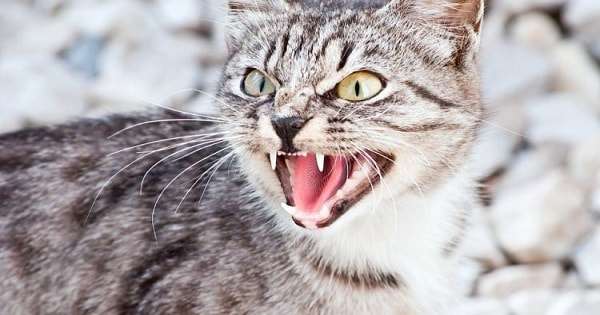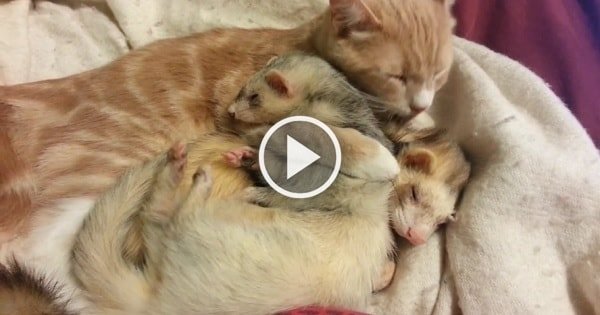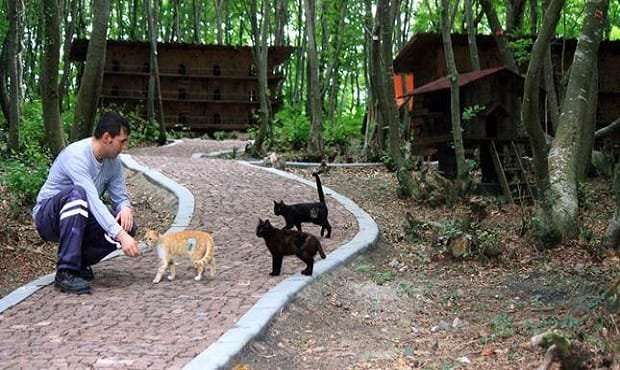Cats certainly are curious creatures with a lot of little quirks and behaviors that have even animal behaviorists puzzled at times. They are very different than canines and are not as easy to understand, since their behaviors are not quite as straight forward as the happy-go-lucky puppy.
Most of us cat people have either heard a cat hiss, or have actually been on the other side of the hiss, with the noise being directed right you. It may be a little unnerving to hear the snake-like noise come out of a cute little feline, and maybe even frightful, because you aren’t truly sure what they intend to do next. So what makes a cat hiss to begin with?
Many different reasons have been formulated as to why cats hiss, and those who have studied this particular behavior say that there are several different reasons, and most originate from a negative type of feeling by the cat, in some form or fashion.
To help you understand a bit better, keep reading to see what the different types of hissing are, and why they do it.
1. In-pain hiss
When a cat is experiencing pain, they have no other way to really express they are in pain to someone when they are touched or handled except to hiss. They are actually letting you know that they don’t want to be touched or handled and to let them go.
They are also well-known to hiss at veterinarians for this very reason. It’s extremely common for a cat to hiss at the doctor if they are being seen for an injury or aren’t feeling well. They simply don’t want to be poked or prodded, especially if the poking is creating more pain.
2. Warning hiss
The warning hiss may be delivered for any number of reasons. For instance, if a mama cat feels like her kittens are somehow being threatened or in danger, she may hiss at an intruder. A cat will hiss at another cat or animal if it feels threatened because it doesn’t know the other animal.
This simply means, “back up, stay away from me.” In the same regards, if a cat were to be introduced to a brand new environment and feel uncomfortable with the new people in it, the feline may be nervous and want you to keep your distance, so he hisses his feelings to you.
3. The non-recognition, aggression hiss
This particular hiss is one that typically stems from a cat not recognizing his cat friend by smell. An good example of this would be that one of the cats goes to the vet and comes back with the smell of the clinic on him, and not his normal smell.
This just might confuse your other cat and make him anxious, or nervous and out of aggression, he hisses at his friend. Once the cat gets his normal scent back, the other kitty will warm back up to him.
4. Play hiss
This is quite a different type of hiss that is recognized by the fact that it is usually a shorter hiss and not a long, drawn out hiss like you’d hear in the other, “serious and means business,” hisses. A kitten is the most likely cat to exhibit this type of hiss, when he feels playful and frisky and typically does not mean any action will be taken with the sound.
A kitten can also hiss if his siblings get a little rough in play, and it will be his way to let them know to settle down.
When a cat hisses, you should always be as prepared as you can that it may become aggressive following the noise.
They just may try to bite, scratch or make another aggressive move. It is always best to back up and give a cat his space when it makes a hissing noise, until you discover what exactly it is that made the cat hiss or try to resolve the issue, such as some injury or let him get adjusted to the situation.
Source: kittentoob.com










